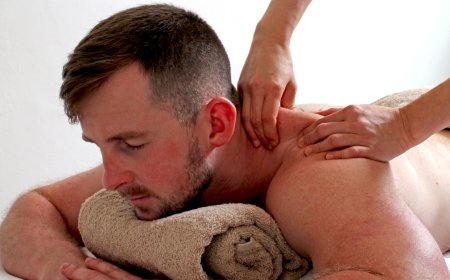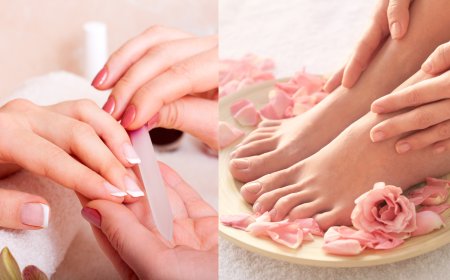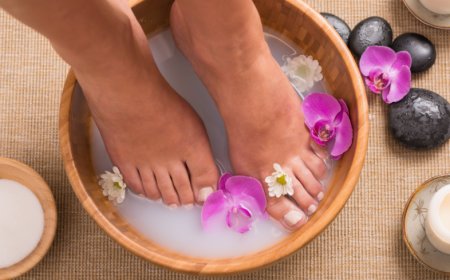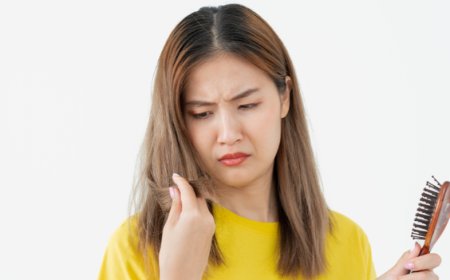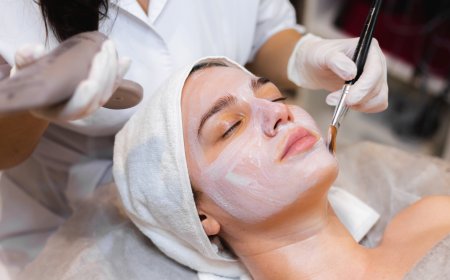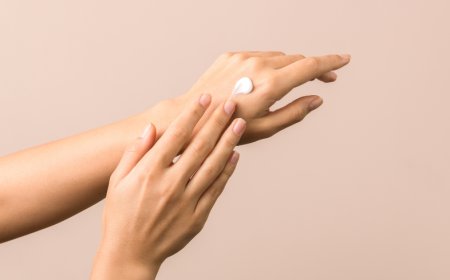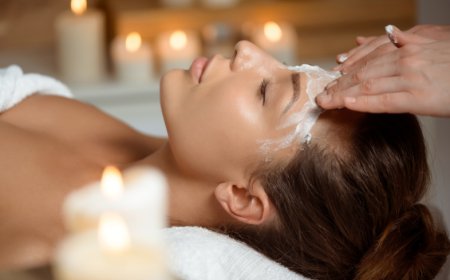From Stress Relief to Pain Management – Why Massage Matters
Discover the benefits of massage therapy for stress relief, pain management, flexibility, immunity, and mental well-being. Improve your health with regular massage!

In today’s fast-paced world, stress and physical discomfort have become a part of daily life. Whether it’s long hours at work, intense workouts, or the demands of everyday responsibilities, our bodies often bear the brunt of it all. This is where massage therapy plays a crucial role—not just as a luxury but as an essential practice for overall well-being.
Massage therapy has been practiced for centuries, offering benefits that go beyond relaxation. From reducing stress to improving circulation and managing pain, its healing power is well-documented. Let’s explore how massage can transform your health, improve your quality of life, and promote a deeper connection between your body and mind.
Stress Relief and Relaxation
The Science Behind Massage and Stress Reduction
Massage therapy is one of the most effective ways to combat stress. When you experience stress, your body releases high levels of cortisol, the hormone responsible for increased heart rate, muscle tension, and heightened alertness. Elevated cortisol levels over time can contribute to anxiety, insomnia, digestive issues, and weakened immunity.
Massage therapy helps counteract these effects by stimulating the parasympathetic nervous system, which is responsible for relaxation. Through rhythmic strokes and gentle pressure, massage:
- Releases Endorphins – These are the body's natural "feel-good" hormones that promote relaxation and enhance mood.
- Reduces Cortisol Levels – This leads to lower stress, better sleep, and improved emotional balance.
- Lowers Blood Pressure – A calmer nervous system results in a healthier cardiovascular system.
Massage and Sleep Quality
Many people struggle with sleep disturbances due to stress, anxiety, or chronic pain. Massage therapy can improve sleep quality by:
- Increasing serotonin and melatonin levels, which regulate sleep cycles.
- Reducing physical tension that prevents relaxation before bedtime.
- Promoting deep relaxation, making it easier to fall and stay asleep.
Pain Management and Muscle Recovery
Chronic pain, sore muscles, and joint stiffness can significantly impact your daily activities. Whether you suffer from migraines, lower back pain, or sports-related injuries, massage therapy provides an effective, natural alternative to pain medication.
How Massage Alleviates Pain
Massage helps in pain management by:
- Improving Blood Circulation – Increased oxygen and nutrients reach tissues, promoting faster healing.
- Releasing Tension in Trigger Points – Trigger point therapy helps relieve pain from muscle knots.
- Reducing Inflammation – Massage promotes lymphatic drainage, which helps remove toxins and reduce swelling.
Best Massage Techniques for Pain Management
Different massage techniques offer targeted relief depending on the type of pain you experience:
- Deep Tissue Massage – Helps break down muscle adhesions and scar tissue, ideal for chronic pain sufferers.
- Trigger Point Therapy – Focuses on specific areas of muscle tightness to relieve pain and improve mobility.
- Myofascial Release – Targets the fascia (connective tissue) to improve movement and decrease pain.
Improved Flexibility and Mobility
Maintaining flexibility and mobility is crucial for overall well-being, particularly as we age or engage in physically demanding activities. Stiff muscles and tight joints can lead to limited movement, discomfort, and increased risk of injury.
How Massage Improves Flexibility
Regular massage therapy can:
- Loosen Tight Muscles – Improves elasticity and movement in muscle fibers.
- Enhance Joint Mobility – Reduces stiffness and improves range of motion.
- Improve Posture – Corrects muscle imbalances that contribute to poor posture and discomfort.
Athletes, fitness enthusiasts, and individuals with sedentary lifestyles all benefit from improved flexibility. Massage, when combined with stretching exercises, can optimize physical performance and reduce the risk of injuries.
Boosted Immunity and Overall Health
Massage therapy does more than just relax muscles—it also supports a healthy immune system. The lymphatic system plays a key role in removing toxins and waste from the body, and massage stimulates this process.
How Massage Strengthens Immunity
- Increases White Blood Cell Production – These cells help fight infections and strengthen immune response.
- Reduces Stress-Related Inflammation – Chronic stress weakens immunity, but massage counteracts its effects.
- Enhances Circulation – Better blood flow ensures that oxygen and nutrients are effectively delivered to tissues.
Regular massage can be a valuable addition to your overall wellness routine, especially during flu season or periods of high stress.
Mental and Emotional Well-Being
Beyond physical health, massage therapy has profound effects on mental well-being. In today’s world, where anxiety and depression are prevalent, massage provides a natural way to restore emotional balance.
Massage and Mental Health Benefits
- Reduces Symptoms of Anxiety and Depression – Studies show that massage lowers stress hormones while increasing serotonin and dopamine, both of which contribute to a sense of happiness and relaxation.
- Eases Fatigue – Mental exhaustion can be just as debilitating as physical tiredness. Massage helps reduce fatigue and rejuvenates the mind.
- Encourages Mindfulness – The focused attention on breathing and relaxation during a massage session promotes a meditative state, reducing racing thoughts and promoting inner peace.
Massage therapy can be an excellent complementary approach for individuals undergoing counseling or other mental health treatments.
Final Thoughts
Massage is not just a luxury—it’s an investment in your health. Whether you’re looking for relief from stress, managing chronic pain, improving mobility, or boosting your immune system, massage therapy offers a wide range of benefits.
Key Takeaways:
- Stress Reduction – Lowers cortisol, releases endorphins, and promotes relaxation.
- Pain Relief – Reduces muscle tension, inflammation, and chronic pain symptoms.
- Better Flexibility – Keeps muscles and joints mobile, preventing injuries.
- Stronger Immunity – Supports lymphatic drainage and overall immune health.
- Enhanced Mental Well-Being – Reduces anxiety, depression, and mental fatigue.
Incorporating regular massage therapy into your self-care routine can lead to a healthier, more balanced life. Whether it’s a professional session or self-massage techniques at home, taking the time to care for your body and mind will pay off in the long run.
Prioritize self-care—your body and mind will thank you!
What's Your Reaction?














